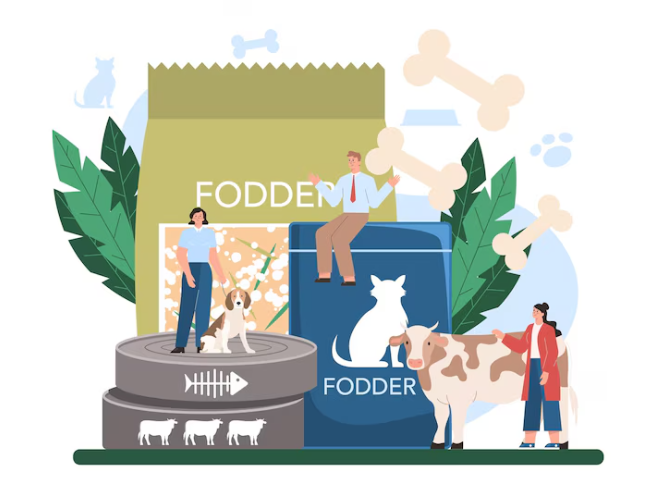FSSAI Issues Guidelines for Acceptance of Recycled PET as Food Contact Material

On May 23, 2025, the Food Safety and Standards Authority of India (FSSAI) issued a significant notification outlining the guidelines for the acceptance of recycled Polyethylene Terephthalate (PET) as Food Contact Material (FCM-rPET). This notification, issued under clause (e) of sub-regulation (4) of regulation 4 of the Food Safety and Standards (Packaging) Regulations, 2018, aims to ensure that recycled PET used in food packaging meets stringent safety and quality standards.
Scope of the Notification
The guidelines cover the recycling process of transforming post-consumer PET, which has been used for food applications, into recycled PET suitable for making Food Contact Materials. The notification specifies the acceptance criteria for using FCM-rPET resin in food contact materials and applies only to recycling technologies approved by FSSAI. Importantly, these guidelines do not apply to the production of resins for non-food grade consumer applications.
Definitions
The notification provides clear definitions for key terms. The Food Authority is defined as the Food Safety and Standards Authority of India (FSSAI), established under section 4 of the Food Safety and Standards Act, 2006. The term “manufacturer” refers to the operator of a recycling process and/or the manufacturer of recycled PET as Food Contact Materials, as approved by FSSAI. The materials covered include Virgin PET (vPET), Post-Consumer Food Grade PET, PET Resin, and Recycled Polyethylene Terephthalate (FCM-rPET).
Testing Requirements
The notification mandates several testing procedures to ensure the safety and quality of recycled PET. These include the Challenge Test, which exposes virgin PET or Recycled Food Contact Material PET to a mixture of chemicals at specified levels and analyzes the residual concentrations. The Extraction Test quantitatively analyzes substances present in recycled PET, while the Migration Test assesses substances migrating from PET containers into food. All tests must be conducted in NABL/ILAC accredited labs in compliance with IS: 12252, IS 9845, IS 9833, and their amendments or latest versions.
Process Requirements
The guidelines specify detailed process requirements to ensure the purity and safety of recycled PET. The process input must meet minimum quality standards for FCM-rPET Resin and be controlled based on process validation criteria identified by the challenge test. The process validation requires that the level of decontamination be below 220 µg/kg in the resin for each surrogate contaminant by challenge test or below 10 µg/kg in the food or food simulant for each surrogate contaminant by migration test. The process output must be subject to a monitoring program to ensure the continuity of Recycled Food Contact Material PET quality over time, including chemical analysis by the process operator.
Acceptance Criteria for FCM-rPET Resin
The acceptance criteria for FCM-rPET resin are stringent and ensure that the resin meets the required purity and safety standards. The resin must conform to the specifications outlined in sections 3.2 and 3.3 of the guidelines, which detail the necessary levels of decontamination and the specific tests required to validate the resin’s suitability for food contact applications.
Marking & Labelling
The notification also provides guidelines for marking and labelling food contact materials made from FCM-rPET resin. The materials must carry a specific symbol, FCM-rPET-X, where X represents the percentage of recycled resin used. The label must also include the information that the packaging material is made with recycled PET. Compliance with any other national requirements is mandatory.
Documentation
Manufacturers of FCM-rPET, converters, beverage bottlers, food packers, and Food Business Operators (FBOs) are required to maintain and provide relevant documentation as specified in the notification. This includes a Declaration of Compliance, a Regulatory Opinion from a recognized authority, and supply chain records on product traceability and quality assurance data at each level of the food chain.
Authorization
Manufacturers must apply for authorization of their recycling process by submitting necessary information as per Form I. The manufacturers of r-PET resins will be subject to an annual audit of their manufacturing plants. The Food Authority will either authorize or reject applications based on assessment (Form II), register authorized manufacturers on the FSSAI website, and reserve the right to call for any information from recognized manufacturers.
Application for Authorization of FCM-rPET Manufacturer (Form I)
The application for authorization requires detailed information, including the manufacturer’s name and address, operational licenses, recycling technology details, global regulatory approval (if applicable), validation reports, quality and safety test reports, and a declaration of compliance with FSSAI guidelines.
Authorization/Rejection of FCM-rPET (Form II)
The authorization or rejection of FCM-rPET applications will be documented in Form II. This form includes details such as the application number, date, manufacturer’s name, address, and type of material being recycled, along with the status of the application and reasons for rejection, if any.
Conditions for Authorization
The conditions for authorization include the Food Authority’s right to inspect records, premises, and manufacturing facilities. Recycled PET intended for food contact material must comply with all FSSAI criteria and regulations. Manufacturers must maintain all specified documents, records, and test reports to ensure compliance.
Conclusion
The FSSAI’s notification on the acceptance of recycled PET as Food Contact Material is a significant step towards ensuring the safety and quality of food packaging materials. By outlining stringent guidelines for testing, process requirements, acceptance criteria, marking and labelling, documentation, and authorization, FSSAI aims to safeguard public health and promote sustainable practices in the food packaging industry. This comprehensive approach ensures that recycled PET used in food contact materials meets the highest standards of safety and quality.
For further details write to contact@indialaw.in
By entering the email address you agree to our Privacy Policy.



